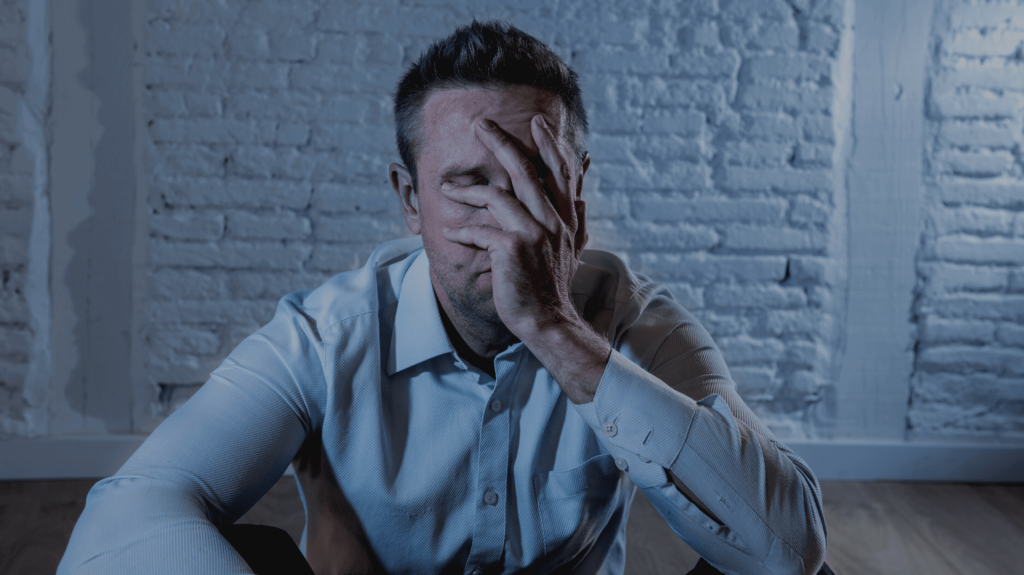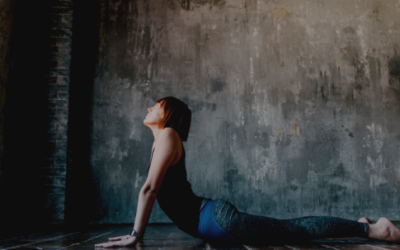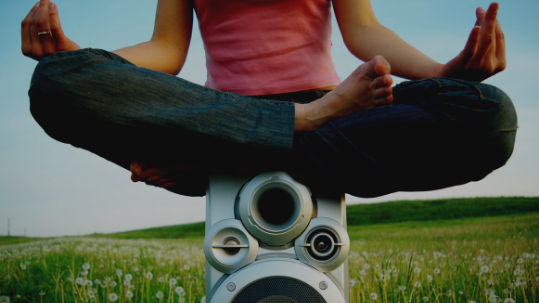It seems as though our current world is an odd juxtaposition of knowing far too much about what is going on, and thanks to quarantine and social distancing guidelines, it’s hard to remember what the feeling of a warm hug from a friend feels like. With the worldwide loss of physical contact to people outside of our households, it is far too easy for anxiety to run rampant in our minds.
News apps are hounding us with updates on the coronavirus, presidential election, and racial injustice. We can’t be guaranteed as totally safe in performing tasks that we typically do to get our mind off of what is bothering us. When we are not actively working through these anxieties (which can manifest itself in so many different ways), our sleep can be impacted greatly; and without proper sleep, the worse we feel, the worse we eat, the less likely we are to get up and get our bodies moving to feel better, and so on and so forth.
We understand that sleep is important and should be treated as such. 2020 anxiety is no joke, and sleep is equally important regarding our mental and physical health. Anxiety that results in interrupted sleep is a snowball effect that can very quickly interfere with every aspect of our lives.
The Huffington Post recently published 8 tricks sleep experts use when 2020 anxiety keeps them awake, which you can read below:
First, recognize that interrupted sleep is a normal response to 2020.
Sarah Silverman, a sleep psychologist in Tampa, Florida, said it helps to remember that waking up during the night is a normal response to stress. So it makes sense that many of us are probably sleeping less than usual.
Acknowledge that this is the problem, Silverman said, instead of immediately getting frustrated. Reminding herself that this is a common problem right now eases her anxiety a bit so it doesn’t add to the stress already waking her up.
Make your bedroom a location for sleep only ― not a place where you work, exercise or check news.
People are spending a lot more time either in the bedroom or someplace near it. We’re using our sleep space as a home office, gym or gathering area ― and that can have unintended effects on our brains.
Even if you aren’t bringing your laptop into bed, it can be very stimulating to have your desk in the bedroom, because your desk is where you work, socialize and scarf down a quick lunch, said Kimberly Truong, the founder of California-based Earlybird Health and a board-certified sleep physician.
“We might also be having important financial conversations with our spouses in bed, because our kids are doing online school in the next room,” Wu added, or we might be doomscrolling in bed more frequently.
What your mind once considered a resting place now becomes associated with negative news and wakeful activities such as being productive, creative and hardworking. If you can, try to do other activities outside your bedroom and keep your bedroom designated for rest.
Wake up at the same time each day and only crawl into bed at night when you’re ready to go to sleep.
Silverman, Truong and Wu all wake up at the same time each morning to set their bodies up to be sleepy at night. On some days you may take longer to feel sleepy, Wu said, but this is normal, particularly if you didn’t do much activity during the day.
“I always keep in the back of my mind that eventually my sleep system is going to kick in and allow me to sleep,” said Silverman.
Instead of tossing and turning because you aren’t ready to sleep at your usual 10 p.m. bedtime, she recommended climbing into bed only when you feel like your body is really ready to fall asleep.
Move your body a little bit each day in a way that feels good (bonus points if you do this outside).
During the day, Silverman, Wu and Truong said they prepare for sleep by spending time in the sunlight and being physically active.
“We release endorphins when we exercise and this boosts our mood, which helps us become more able to weather the stressors we encounter, and that makes us better able to sleep,” Wu said, noting that moving your body also builds up your sleep drive, as your brain will want to rest after an active day.
Exposing your body to as much sunlight as possible is also important, Wu said. The amount of light exposure you get during the day preps your brain for sleep when it gets dark. In the shorter, colder days of fall and winter, it can be more difficult to get sunlight, but even a short walk when the sun is out or sitting in the backyard can be helpful. And if sunlight is really scant, Truong suggested trying light box therapy in the morning to ensure your internal body clock stays healthy.
Keep to a routine of regular meals.
Truong noted that having three to four meals at set times during the day can help with getting proper rest.
This is mostly because eating regular meals keeps our circadian rhythm synchronized to the passage of the day. Your brain knows when it’s morning, afternoon and night based on what meals you’re eating. When meal patterns become haphazard, it can lessen the distinction between day (or wakeful hours) and night (or sleeping hours).
Figure out the difference between your body being sleepy and your body being tired.
“The causes of sleepiness look very different from the causes of feeling tired,” Silverman said. For instance, your body might feel tired during the day due to mental fatigue from the barrage of negative information. But according to Silverman, this does not necessarily translate into being able to fall asleep. And trying to sleep could backfire.
“If you try to force yourself to sleep when you’re tired but not sleepy, you’ll end up fighting against your own body and getting more stressed out,” Wu said.
Learning to differentiate between tiredness and sleepiness helps you give your body what it needs. “When you’re tired, you feel exhausted or depleted, and the cure for that is rest,” Wu said. This could be taking a shower, going for a walk, doing breathing exercises or enjoying a TV show or book.
“When you’re sleepy, your eyes are rolling and hard to keep open, your head is nodding, you can’t concentrate, and the cure for that is to sleep,” Wu said.
If it is already nighttime, then start your nighttime sleep. If you’re incredibly sleepy during the day, Wu is a believer in taking a 30-minute catnap, as long as you don’t start using these naps to catch up on lost nighttime sleep. “If you’re having a lot of frequent nighttime trouble, I would cut out the naps,” she said.
Get out of bed if you start to have anxious thoughts.
“As we carry on with our day, there’s a lot on our plates and we’re always on the go. It’s not usually until nighttime [that] things quiet down and you’re left with yourself and your thoughts,” Truong noted. “Having very stimulating thoughts or high anxiety thoughts leads to a stress response, such as increased heart rate and sweaty palms, that makes it difficult for one to fall asleep.”
If you’re lying in bed when this happens, it’s easy for the bed to become associated with anxiety and stress. To break this pattern, Silverman said, “It’s better to physically get out of bed and ideally go to another room to have this thought process take place somewhere else.”
Truong suggested journaling to capture the anxious thoughts you’ve had throughout the day before you carry them with you into the bedroom. For 30 to 40 minutes after dinner, she free-writes, jotting down any thoughts that come to mind without any judgment.
Engage in mindless activities, like folding clothes or doing dishes, before you go to sleep.
Experiment with cutting out scrolling through messages and news feeds at night, Wu said ― especially if you’ve noticed you feel tense and start worrying when your head hits the pillow.
Having a consistent evening routine of enjoyable but mindless activities in the couple of hours before bedtime can support sleep.
Wu likes to prepare her baby’s clothes and bottles for the next day. “Doing something rote that requires me to use my hands, such as folding clothes or preparing baby bottles, is almost mesmerizing and meditative for me,” she said.
She also finds that she falls asleep within 20 minutes of starting to listen to an audiobook that she has already heard before or that isn’t otherwise difficult to put down.
Meditation and relaxation techniques are another sleep aid. Truong suggested doing gentle stretches or body scanning, which involves mentally checking in with your body from head to toe, one area at a time, while breathing in and out.
Visualization meditation, which has a number of variations, can also help. You might visualize yourself in a place that evokes feelings of joy or peace while engaging in deep breathing or picture an image that assists you in letting go of anxious thoughts. Truong gave an example of picturing each anxious thought, one at a time, falling on a leaf floating down a river, and the river taking it away.
[via The Huffington Post]





